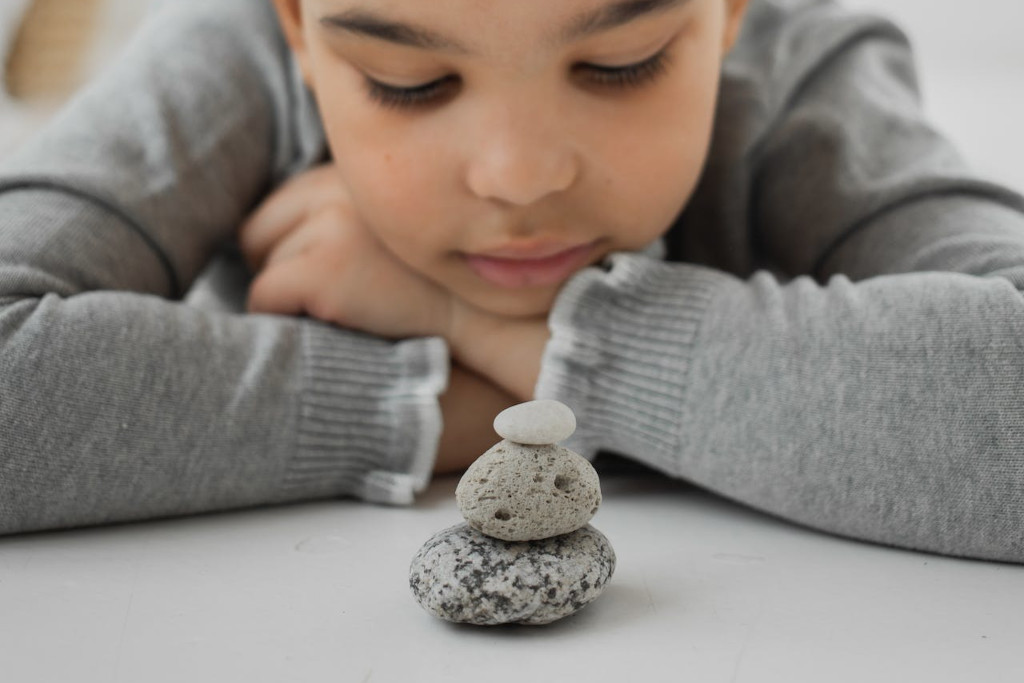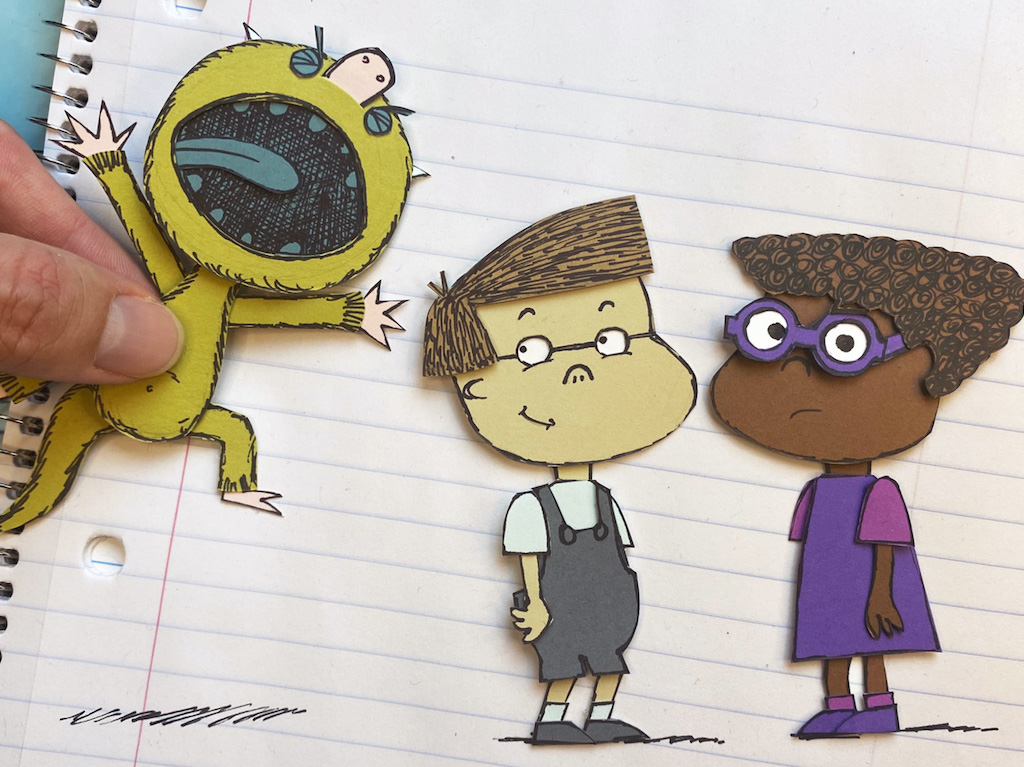SingaporeMotherhood | Parenting
February 2024
Decoding Parent-Child Dynamics: Mummy Priscilla & Sons Isaac and Ian

Figuring out your parent-child dynamics is complicated enough with one child. But what if you have two (or more) children, and they happen to have very different personalities? Developmental psychologist Lydia Lim says that the key is taking time to distil and understand each party’s personality driven responses and behaviours, and then react accordingly. They may be siblings, but they are still individuals at the core.
This was the reason she co-founded Connected, a digital resource that helps parents understand, in layman’s terms, the psychology behind the personality traits of their children. With this knowledge, you can then parent each child more effectively and foster stronger communications. It makes it easier for you to spot if your child is in distress, while children are more likely to confide in a parent they feel connected to.
(See also: DECODING PARENT-CHILD DYNAMICS: MUMMY EVELYN & DAUGHTER CLAIRE)
In this series on Decoding Parent-Child Dynamics, we ask parents what personality trait they struggle with most in their child. They also share a little about their parent-child dynamics. Finally, Lydia breaks it down and offers personality-driven insights behind each pair. She explains how the parent-child personalities relate to each other and also curates tips and strategies each parent can incorporate into their parenting journeys.
Mummy Priscilla & Sons Isaac and Ian
In our fourth and final instalment in this series, we hear from Priscilla Tan, 35-year-old project analyst and mother of two boys. Isaac is eight years old, while his little brother Ian is four.
“Isaac is a reserved child. This is especially challenging when it comes to having him share his feelings and thoughts on what he thinks are not easy to talk about. Whenever my husband or I sense that he is upset, it will take us eons to get to the root of the problem.
In instances when he simply refuses to open up, we give him space to think it through and share with us when he is ready. With Isaac, I make it a conscious effort to ask him daily how his day went. That way, he is reminded that I am always interested to hear what he has to share with me.

On the flip side, Ian is a wild child! He is an assertive individual who stands up for what he thinks is right. We can always count on him to look out for his big brother at the playground. He will not let anyone intimidate his loved ones.
Once, I saw him yelling at a kid at the playground because the other kid pushed Isaac. The only thing that worries us is the fact that he is petite and yet so fearless when it comes to opponents who are usually a lot older and bigger than he is.”
(See also: THEORY OF MIND – HOW IT HELPS IMPROVE YOUR CHILD’S FRIENDSHIPS AND QUALITY OF LIFE)
Our Parent-Child Dynamics
“I think if Isaac were to have a middle name, I’d likely call him Isaac Chill Lin — like chillin’ — haha! Isaac is someone who is incredibly easy to be around because he is just so chill. This is so even when I ask him to do anything.
For example, when I ask him to prepare to leave the house, he will take his time to get changed. He takes his time to comb his hair, to use the toilet one more time before leaving home… grab his bag… put on his sandals… It really gets on my nerves, especially when we are in a rush!
As for Ian, he is a little perfectionist when it comes to his own creations. He loves art and can spend hours drawing and colouring. At times when he invites me to create something with him, it has to be by his rules. If I accidentally draw something that overlaps his drawing, or if I pick a colour not to his liking, he goes hysterical.
It makes playing or drawing with him a tad stressful. I don’t know which is worse, to create something with him, or to get from one end of the toy room to the other, with Lego blocks all over the floor. Both are like walking on landmines!”
(See also: PARENTAL STRESS, ANXIETY, AND BURNOUT: ARE THEY HAPPENING TO YOU?)
ISAAC
Personality-driven Insights

Lydia breaks it down: Isaac sounds like he may have a combined hardwiring to be cautiously reserved in the way he self-discloses, along with the need for time and space to think through what he wants to articulate. His ‘think before talking’ inclination seems in direct contrast to Priscilla’s ‘talk to think’ nature.
It appears that she intentionally works at giving Isaac the space he needs, while leveraging on her own assertiveness to verbally encourage, nudge, and remind Isaac that she’s waiting to hear from him.
Incidentally, the extremely long waiting time that Priscilla describes is likely the impact of ‘Isaac Chill Lin’s’ very composed nature! This personality-driven inclination allows Isaac to be unperturbed and unaffected by the hustle and bustle around him. However, this also translates to a seeming lack of urgency.
Interestingly, even when Isaac is upset and disturbed by something, his chill and composed personality tends to kick in to deliberately cause a delay in his response, rather than activating it. The same happens when others express frustration and annoyance — assertions that may not make a dent in Isaac’s chill demeanour. He can be that chill and composed!
(See also: PARENTS, INSPIRE YOUR CHILD TO SELF-MOTIVATE)
How The Parent-Child Personalities Relate
Lydia explains further: Isaac’s quieter, more reserved, chill, and composed traits actually combine to allow him the time and space he naturally prefers and needs to think things through. He weighs his options carefully before deciding on his choice of action or reaction.
There’s always wisdom in not reacting too quickly because this gives Isaac the necessary objectivity and time to find the best-case response that will safeguard him from unnecessary judgement and misunderstanding. The irony is that it is this very radio silence and no-reaction response that gets Isaac misperceived as disengaged, non-committal, and even irresponsible.
Hence it is understandable that Priscilla experiences frustration, impatience, and perhaps even exasperation. Unfortunately, when Isaac encounters these reactions to him, his instinct may be to withdraw even more. The more intense the responses are to him, the more Isaac is likely to instinctively turn away, retreat, and withdraw into his cave to deliberate.
Curated Tips & Strategies

Lydia shares: Here are a few things Priscilla can consider as she journeys with Isaac:
- Consider giving Isaac un-interrupted space to think and prepare his response. By un-interrupted, this means to set a time (and even a date) for him to get back to you. It is important you hold this space quiet for Isaac, rather than punctuate it with reminders, questions, and clarifications. This is because the more interruptions he experiences, the more he will need to carve out added processing time.
- When Isaac is sharing, it is best to refrain from interjecting. That could essentially mean that he has to take all his prepared thoughts back to the drawing board for re-evaluation. Oops! Should there be clarifications or questions, wait till Isaac finishes sharing, before raising them. Chances are, hearing him out may already answer some of those questions.
- When Isaac is overly chill, non-responsive, or at risk of completely disengaging, don’t expect him to suddenly exhibit a sense of urgency. This will only bring about unfair disappointments towards him. Isaac is simply hardwired to be less emotionally engaged by worries and concerns. He would respond a lot better to a reason-based process, where you can consider reverse-engineering schedules ahead of time. Understand that Isaac is most likely still going to be unperturbed even as he gradually learns to step up.
(See also: DECODING PARENT-CHILD DYNAMICS: MUMMY RACHEL & DAUGHTER OIA)
IAN
Personality-driven Insights

Lydia breaks it down: Ian appears to pack quite a punch! He’s described as highly assertive, straight-talking and a fearless soul. He has no qualms about passionately standing up against injustice around him, even if they come in much bigger sizes — a true chilli padi! Being artistic and creative, these personality-driven inclinations may actually intensify Ian’s fiery passion for what he envisions is right.
As Priscilla describes, Ian’s perfectionistic pursuits can also translate to unspoken expectations and parameters that he places on himself, as well as others around him. While Priscilla describes Ian to potentially be exacting and explosively harsh on those who cross his boundaries, it is likely that Ian may be even harsher on himself.
Another contributing personality-driven aspect is Ian’s preference to roll with the punches and play things by ear. His comfort with mess and discomfort with detailed orderly plans potentially creates the scenes that Priscilla describes — where navigating a Lego-strewn floor and co-creating a piece of art with Ian is tantamount to ‘walking on landmines’.
(See also: 10 EFFECTIVE WAYS TO HELP YOUR CHILD COPE WITH STRESS)
How The Parent-Child Personalities Relate
Lydia explains further: Ian’s fiery assertions, in combination with his explosive passion, creates a very different set of dynamics for Priscilla to navigate. Her concerns for his safety (because of his smaller physical size), while very real, needs her careful guidance so that it doesn’t spark greater reactions from Ian. Especially since any feelings of being slighted may result in his need to prove himself further.
Until Ian learns to articulate his own expectations and artistic plans, there is always the potential for Priscilla to cross some of those lines. In fact, Ian himself may not know that he’s upset or something is wrong, until that very moment!
Hence, it may not be uncommon for Ian to discover his own displeasure at the same time as everybody else around him. This may then explain Priscilla’s experience of being somewhat apprehensive over how best to support Ian.
Curated Tips & Strategies

Lydia shares: Here are a couple of things Priscilla can consider as she journeys with Ian:
- Because Ian is quick to react and explosive by nature, urging him to calm down would be counter-productive. In fact, asking him to not be angry is probably a sure-fire way of triggering him! Instead, encourage Ian to unpack and reflect upon his experiences and emotions on hindsight. Help him to identify what he was standing up against and what he was trying to make right. This would be more helpful than trying to repress and ignore his thoughts and feelings.
- Ian is rather spontaneous and responsive to the environment and people around him. So consider initiating frequent conversations to help him articulate his artistic visions and his pursuit of perfection. Encourage him to discuss the typical things and variables that greatly affect and disturb him. As he grows in confidence and competence to do this with you and others close to him, he will be better able to create a buffer zone that will allow him to react less and be more deliberate in his responses.
If you relate to Priscilla, Isaac and Ian’s parent-child dynamics, then consider applying Lydia’s tips and strategies. You can also tap into Connected for more personalised insights on your parenting journey. Otherwise, do check out previous instalments of Decoding Parent-Child Dynamics, other parents share their real-life parenting struggles.
(See also: DECODING PARENT-CHILD DYNAMICS: DADDY KANE & DAUGHTER AVA)
All content from this article, including images, cannot be reproduced without credits or written permission from SingaporeMotherhood.
Follow us on Facebook, Instagram, and Telegram for the latest article and promotion updates.





